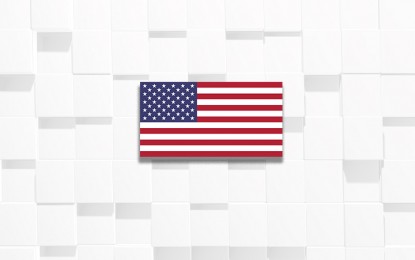
WASHINGTON – The coronavirus disease 2019 (Covid-19) pandemic will cost the United States USD16 trillion, or approximately 90 percent of the annual gross domestic product (GDP), former US Treasury Secretary Lawrence Summers and Harvard University economist David Cutler said Monday.
Roughly half of this amount is the lost income from the Covid-19-induced recession, and the remainder is the economic effects of shorter and less healthy life, Cutler and Summers wrote in an article published online in the Journal of the American Medical Association.
The economic loss will be four times the cost of the Great Recession, and it is more than twice the total spending for all the wars the US has fought since Sept. 11, 2001, including those in Afghanistan, Iraq, and Syria, the authors noted.
For a family of four, the estimated loss would be nearly USD200,000, according to the article.
Summers, who was treasury secretary for former President Bill Clinton and economic adviser to former President Barack Obama, is also a professor at and past president of Harvard University.
As of Monday night, the country has recorded more than 7.8 million confirmed Covid-19 cases and over 214,000 deaths, according to a data-tracking tool developed by Johns Hopkins University.
Cutler and Summers said lower output is not the only economic cost of Covid-19, noting that death and reduced quality of life also can be measured in economic terms.
For example, with the technique of valuing "statistical lives" -- which measures how much it is worth to people to reduce their risk of mortality or morbidity -- the economic cost of premature deaths expected through the next year is estimated at USD4.4 trillion.
"The immense financial loss from Covid-19 suggests a fundamental rethinking of government's role in pandemic preparation," said Cutler and Summers.
Currently, the US prioritizes spending on acute treatment, with far less spending on public health services and infrastructure, the authors noted.
They highlighted the importance of wide-scale testing, contact tracing and isolation, noting that "increased investment in testing and contact tracing could have economic benefits that are at least 30 times greater than the estimated costs of the investment in these approaches."
"As the nation struggles to recover from Covid-19, investments that are made in testing, contact tracing, and isolation should be established permanently and not dismantled when the concerns about Covid-19 begin to recede," they added. (Xinhua)
